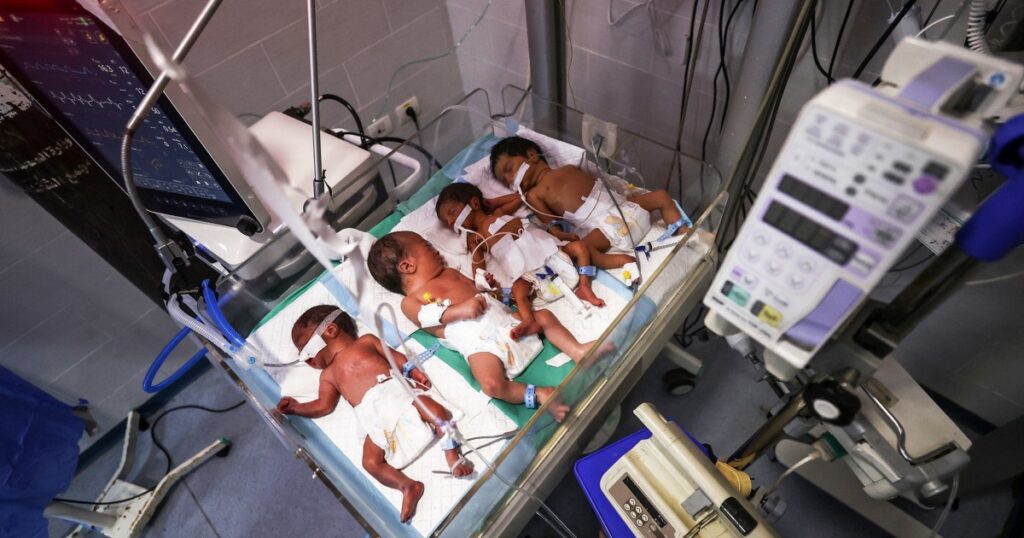
Critical care for newborns in Gaza is at severe risk as hospitals face the imminent shutdown of vital units due to a fuel shortage. Medical professionals warn that without fuel, incubators and essential medical equipment may be turned off, endangering the lives of vulnerable infants.
Dr. Ahmad Al-Farra, head of the pediatric unit at Nasser Hospital in Khan Younis, highlighted the desperate situation during a visit on March 15, 2024. He pointed to a newborn in an incubator, reliant on mechanical ventilation. “If the electricity was cut off… this baby will not survive,” he stated, echoing concerns raised earlier in the conflict when infant deaths were reported in northern Gaza.
According to the United Nations Office for the Coordination of Humanitarian Affairs (OCHA), fuel supplies in the enclave are nearly depleted, putting the lives of critically ill patients in jeopardy. The total ban on fuel entry, enforced by Israel for approximately 130 days, has exacerbated the situation. Although Israel lifted some restrictions in May, allowing limited aid, the supplies remain insufficient.
In response to inquiries from NBC News, David Mencer, spokesperson for Israeli Prime Minister Benjamin Netanyahu, suggested that the real threat to the region comes from Hamas, stating, “They hijack fuel for terror, not hospitals.” He did not clarify whether additional fuel would be allowed to reach Gaza’s healthcare facilities.
Dr. Mohammad Saqer, director of nursing at Nasser Hospital, reported that the facility has only about 3,000 liters (approximately 790 gallons) of diesel remaining, while it requires 4,500 liters (about 1,190 gallons) daily to operate effectively. With power already cut to some departments, Dr. Saqer warned that the hospital could run out of electricity within 24 hours. “This means that a lot of patients, especially in the ICU, are subject to inevitable death,” he added.
The healthcare system in Gaza has suffered greatly due to ongoing conflict, with none of the region’s 36 hospitals fully operational. As of the latest data from the World Health Organization, 18 hospitals provide only partial services, while another 18 have ceased operations entirely.
Dr. Saqer has called on the international community to intervene and facilitate fuel deliveries to hospitals in Gaza, emphasizing the urgency to “save the lives of the children.” His plea comes as Kaja Kallas, the European Union foreign policy chief, announced a new agreement with Israel to allow essential food and fuel into Gaza. Kallas noted that the deal could lead to “more crossings open, aid and food trucks entering Gaza, repair of vital infrastructure and protection of aid workers.”
Israeli Foreign Minister Gideon Sa’ar confirmed the agreement at a conference in Vienna, highlighting the potential for humanitarian relief amidst the ongoing crisis.
As the situation unfolds, the lives of countless vulnerable patients hang in the balance, underscoring the dire need for immediate action to address the fuel shortages threatening Gaza’s healthcare system.







